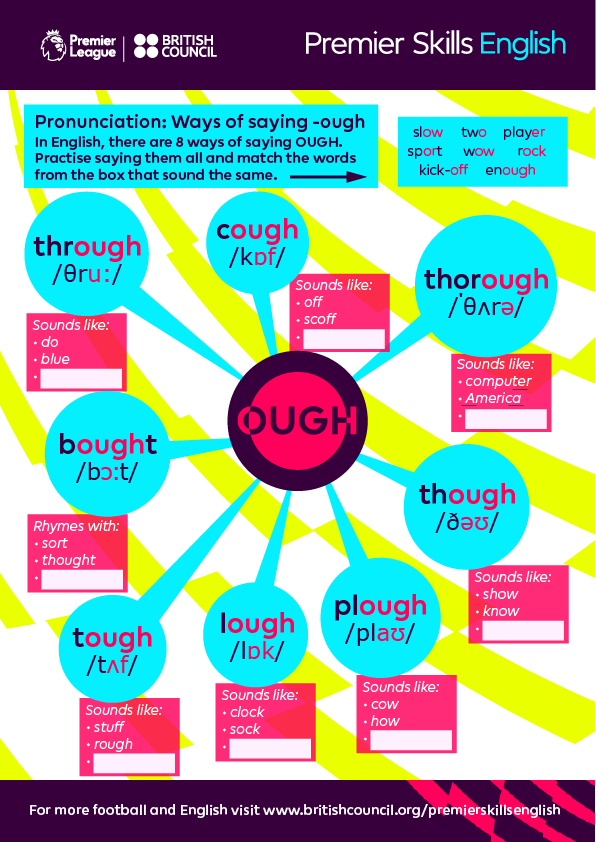|
Sotto trovate la traduzione dell'articolo Without a doubt, compared to Latin languages, English grammar is much easier. Adjectives and nouns have no gender, there is no polite form and apart from a few 'irregular' verbs, verb endings are easy, and hardly change. The difficulties start with pronunciation. English is not a pure language and many words come from different sources and are not pronounced as they are spelled. This is why much emphasis must be put on listening and speaking skills, right from the start. A great example of how English pronunciation can be challenging is superbly represented in this episode from the famous television series from the 1950s "I love Lucy". Lucy and her husband Riccardo are expecting a baby. Riccardo is Cuban and not a native English speaker but he claims that he would have no problem whatsoever to read bedtime stories in English to his newborn. Lucy puts him to the test with the different pronunciations of "ough". Did you know that there are 8 different pronunciations of "OUGH"? Below is a handy chart made by the British Council to practise the different ways of saying "OUGH". LA PRONUNCIA E' TUTTO!
Senza dubbio, paragonata alle lingue latine, la grammatica inglese è molto più facile. Gli aggettivi e i sostantivi non hanno genere, non esiste la forma cortese (“Lei”) e, con l’eccezione di qualche verbo irregolare, le desinenze verbali sono facili e cambiano poche volte. Le difficoltà dell’inglese iniziano con la pronuncia. L’inglese non è una lingua pura e molte parole provengono da fonti diverse e non si pronunciano come sono scritte. Ecco perchè bisogna dare molta enfasi allo sviluppo delle competenze di ascolto (“listening”) e di parlato (“speaking”), fin dall’inizio dello studio della lingua. Un esempio eccezionale di come la pronuncia in inglese può essere impegnativa è rappresentata in maniera esemplare in questo episodio della serie televisiva degli anni 50 "I love Lucy". Lucy e suo marito aspettano un bambino. Riccardo è cubano e non è di madre lingua inglese ma sostiene che non avrebbe nessun problema a leggere storie della buonanotte in inglese al futuro neonato. Lucy lo mette alla prova con le diverse pronunce di "OUGH". Lo sapevate che esistono ben 8 pronunce diverse di "OUGH"? Sotto trovate una tabella pratica della British Council per esercitare i diversi modi di pronunciare "OUGH".
1 Comment
|
Categories
All
Autrice
Archives
December 2020
© 2017-2023 bmyenglishteacher.com
|


 RSS Feed
RSS Feed
